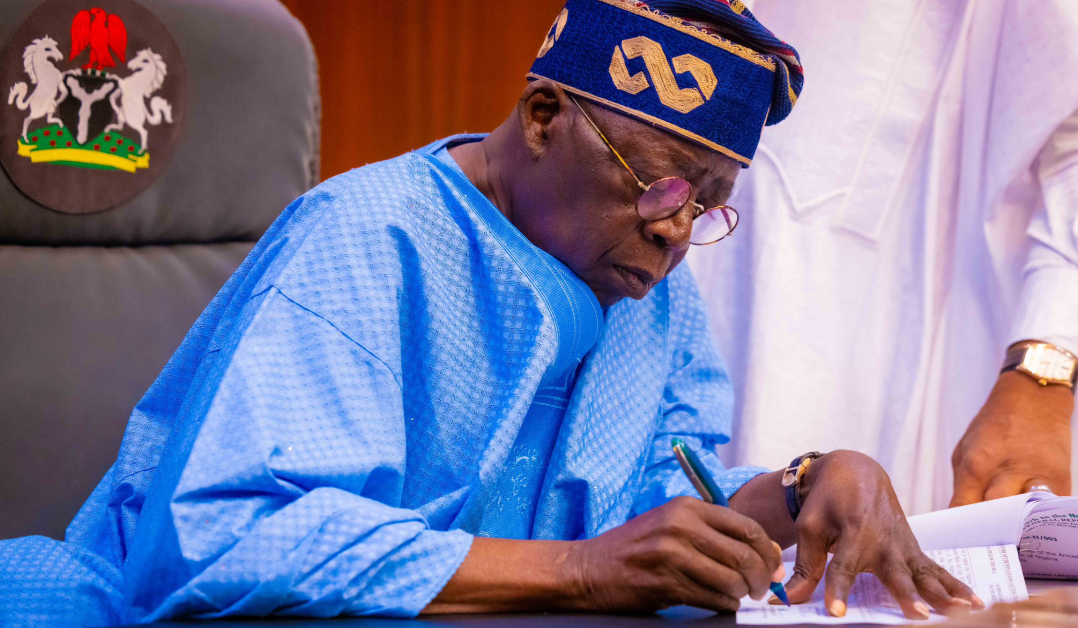In a significant move to support businesses and spur economic growth, President Bola Tinubu of Nigeria has signed four executive orders aimed at alleviating the tax burden on individuals and companies in the country. These orders, which defer and suspend certain taxes, respond to concerns raised by manufacturers and stakeholders regarding recent tax changes and aim to create a more favorable business environment.
The first executive order, known as the Finance Act (Effective Date Variation) Order, 2023, delay the implementation of changes outlined in the Act until September 1, 2023, ensuring a minimum 90-day notice period for tax adjustments. Similarly, the Customs, Excise Tariff (Variation) Amendment Order, 2023, shifts the commencement date of tax changes to August 1, 2023.
In addition, President Tinubu has suspended the five percent excise tax on telecommunication services, as well as the excise duties escalation on locally manufactured products. The newly introduced Green Tax on Single Use Plastics and the Import Tax Adjustment levy on certain vehicles have also been put on hold.
These measures have garnered praise from various organizations, including the Nigerian Association of Chambers of Commerce, Industry, Mines and Agriculture (NACCIMA), telecoms operators represented by the Association of Licensed Telecoms Operators of Nigeria (ALTON), the Nigeria Employers Consultative Association (NECA), and the Manufacturers Association of Nigeria (MAN). The business community appreciates the government’s efforts to ease the high cost of doing business and create a more conducive environment for economic growth and job creation.
President Tinubu’s administration is committed to addressing concerns related to multiple taxation and adopting business-friendly fiscal policies. By signing these executive orders, the government aims to simplify and harmonize the tax system, promote fairness and transparency, and attract investments to Nigeria.
This bold action by President Tinubu reflects his responsiveness to the needs of the Nigerian people and his determination to support businesses in navigating the challenges posed by tax adjustments. The aim is to stimulate economic activities, enhance productivity, and foster an overall favorable socio-economic landscape.










